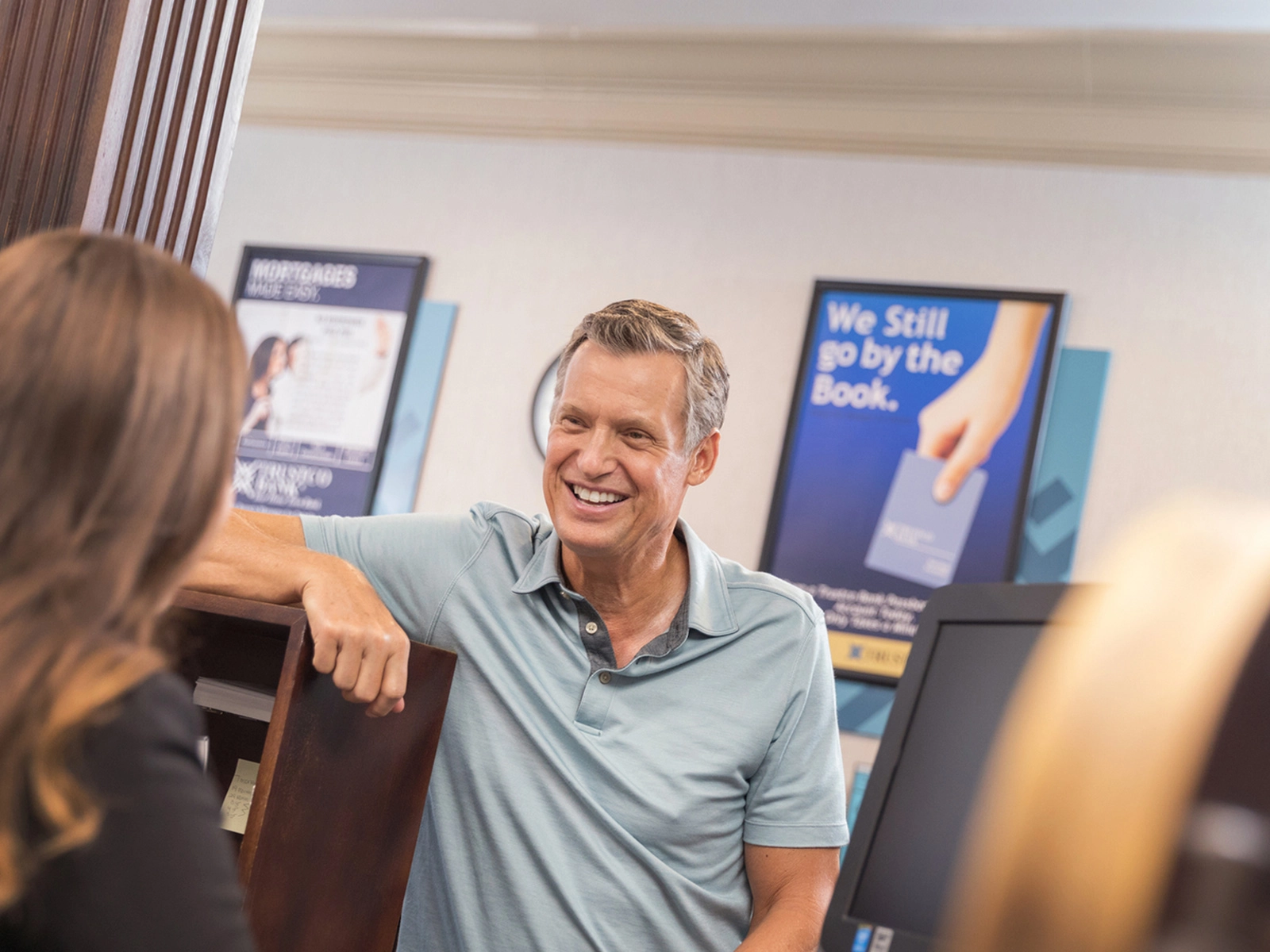
One of the best ways to reach your financial goals is to save your money in an FDIC-insured bank. Organizing your finances and keeping track of your spending can save money by reducing fees and interest charges. Don’t miss out on opportunities to save, like planning ahead to tuck some of your tax refund into your savings account. Below are some things you can do to keep your financial matters in order.
Your bank account
Make sure you have an FDIC-insured account to keep your money safe. Go to the FDIC #GetBanked pages for more information on how to find and open a bank account that is right for you. Each bank account is insured by the FDIC for at least $250,000 per depositor, per FDIC-insured bank, for each account ownership category.
The following banking tools can make things easier when conducting transactions.
Direct deposit
Consider having your pay, pension, or Social Security benefits automatically deposited into your bank account. Direct deposit is safer, easier, and more convenient than getting a paper check in the mail and having to deposit it into your bank account. It may even help you avoid some bank fees or minimum balance requirements. Direct deposit also gives you access to your money sooner than with a paper check and allows you to avoid possible check cashing fees.
Bill pay services
Many banks offer online bill-paying services that enable you to pay bills quickly and easily. These programs generally allow you to sign up on your bank’s website to receive bills electronically from entities you do business with, such as utility companies. If you choose to receive bills electronically, you can review the bill and pay it from the bank’s website. You can also get such bills in paper form and still pay them electronically from your bank’s website.
Many merchants, such as insurance or utility companies, will allow you to pay recurring bills with an automatic withdrawal from your checking account. You must be sure to keep track of these transactions, however, to avoid overdrawing your bank account. Here are ways to avoid overdraft and account fees.
Online banking
Online banking lets you review deposits and withdrawals, keep track of your balance, deposit checks electronically, and move funds between your checking and savings accounts at your convenience. For example, with online banking you can quickly review your account and make sure you didn’t forget to record any debit or ATM card transactions. You can also get an update on whether funds from recent deposits are available for withdrawal and view your bank statements. In addition to websites, many financial institutions have mobile banking applications that allow you to access your account from your smartphone or other device. Find more information on mobile banking on our Banking at the Speed of Technology webpage.
Put your savings on autopilot
You can arrange with your bank to automatically transfer a certain amount of your pay from your checking account into a savings or investment account on a regular schedule. Automatic savings programs make it easy to build an emergency fund or save for the future. For example, if you are paid every other week and put $20 into your savings account each pay period, that adds up to $520, plus interest, to your savings each year.
Look into automated money management tools
Your bank or another third party may offer money-management software. Consider using these programs to help you organize your finances, understand how you spend your money, and spot potential fraud or theft (by providing a regular summary of account balances). If you select a third party, be sure to research and choose a known and trusted organization to avoid fraudsters.
Don’t let a disaster catch you off guard
If a disaster were to occur and you had only a short period of time to evacuate your home, perhaps for several days or even longer, would you have access to your money, banking services, and the personal identification you need to conduct your day-to-day financial life? FDIC Consumer News: What to Do When Facing a Natural Disaster provides great tips on how to prepare your finances for a natural disaster. One important step is to keep your important financial documents in a safe location and make sure they are updated as needed.
Savings ideas for your tax refund or child income tax credit
If you are receiving a tax refund or the child income tax credit, you should plan what to do with it. People may use tax refunds to make large purchases they might not have the cash for at other times of the year. It also provides an opportunity to start a new savings option, contribute to your emergency fund, or reduce outstanding debt. Visit Tax Season and Your Refund Options for good savings ideas.
By using these tips, you can better prepare your finances to avoid fees or interest charges, while also increasing your opportunities to save.
Additional Resources
What do You Need To Open A Checking Account
Trustco offers several different debit cards for their customers. Find out which card best fits your needs.
Why You Should Open A Health Savings Account
Do you wish you had better control over how you spend your health-care dollars? If so, you may be interested in an alternative to traditional health insurance called a health savings account (HSA).
Environmental
At Trustco Bank we understand the importance of limiting our carbon footprint while delivering the best value to our shareholders.



